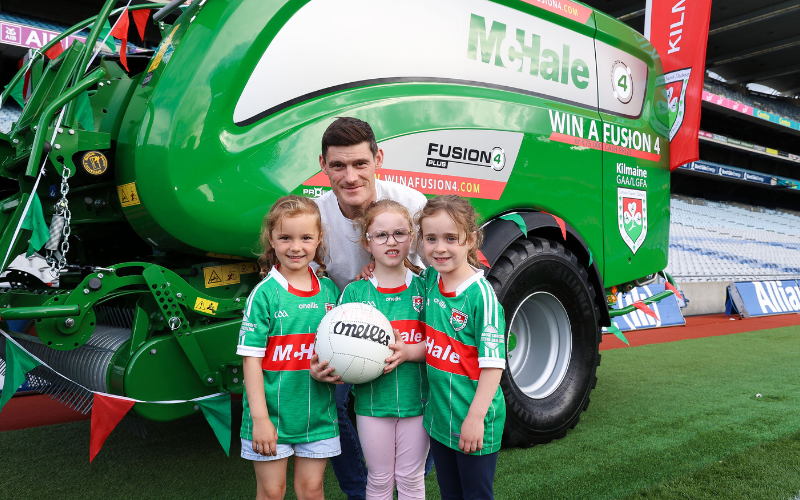The Irish general election is proving to be a disaster for the partners in the country's governing coalition. A total of 20 Fine Gael TDs are facing defeat at the polls and Labour will probably not even make double figures when the votes are counted.
Meanwhile Fianna Fáil are doing well and competing with Fine Gael for the largest number of deputies. Speculation is rife that they may form an unprecedented government alliance with Fine Gael, which would leave Sinn Féin as the main opposition party.
There was a general expectation that the Labour Party would get hammered and that's the way it has turned out. But there was a degree of optimism among supporters of the senior party, Fine Gael, that the electorate would give them a relatively soft ride.
However, governments that implement austerity policies rarely incur the gratitude of the voters. The previous coalition suffered a humiliating defeat at the last general election when the Fianna Fail party lost 51 of its 71 seats in Dáil Éireann, the main house of the Irish parliament, and all six representatives from the Green Party were defeated.
Going into that election, Labour pledged outright opposition to specific cuts but when they got into government, the same list was fully implemented. The party also indicated that it would take a tough line against austerity policies imposed by outside bodies such as the European Central Bank, but failed to live up to this macho image when it got into power.
The Irish electorate can be vengeful and, when given the chance this past Friday, voters took it out on Labour big-time. As I write, it looks as if the party will only have from seven to nine seats in the new Dáil compared to 37 after the 2011 general election.
The state of play with 51 of 158 seats filled #GE16 pic.twitter.com/9ofoxKlKMk
— RTÉ News (@rtenews) February 27, 2016
But Fine Gael are the real story. The party will do well to stay ahead of Fianna Fáíl when the dust has settled. Among its electoral casualties are high-profile former justice minister Alan Shatter who went down to defeat in the Dublin Rathdown constituency and former Health Minister James Reilly, the party’s Deputy Leader who also went down to defeat.
As a right-of-centre party, Fine Gael was proud of having taken over an economy which was in dire straits but had now come through the worst and was getting better by the day. Reflecting this mood, the party chose the slogan, "Let's keep the recovery going."
This must have looked, on the face of it, like a good message to put before the voters. However, a lot of Irish people still feel they are suffering the effects of the recent recession and that the "recovery" is not reflected in their daily lives.
A better slogan would have been something like: "Let's not risk the recovery". It would still have conveyed the subliminal message that you shouldn't vote for
Fianna Fáil who made a mess of things in the past, or Sinn Féin who would screw things up in the future, but without suggesting that everyone was now in a good financial situation.
Another mistake Fine Gael made was giving Taoiseach (Prime Minister) and party leader Enda Kenny too much prominence in the campaign. Although a skilled manager of people, he is notoriously gaffe-prone and more than lived up to that reputation when the starting-pistol was fired.
Enda Kenny has been asked to apologise for describing some Castlebar locals as 'whingers' during a speech yesterdayhttps://t.co/XTDQj8GSRs
— RTÉ News (@rtenews) February 21, 2016
He began by dodging a key question on the amount of spare cash in government coffers and finished up with an unfortunate reference to "whingers" in his own constituency or electoral district of Mayo which was taken as a reference to ordinary residents, although he later insisted he meant only his political opponents.
Tánaiste (Deputy Prime Minister) and Labour Party leader Joan Burton did not fare much better. Although highly-intelligent and well-informed, she did not come across well in TV debates with other party chiefs. It didn't help either when she took a canoe-trip on the River Nore and ended up flip-flopping into the water on camera.
"@rtenews: Joan Burton after falling out of a canoe, Thomastown, Kilkennyhttps://t.co/z3ewFj8osx"#canoe #wintersports #fishing4votes
— kevin lyons (@kjlyons69) December 31, 2015
It's been a good election for Fianna Fáil. Formerly reviled for its failure to foresee the banking and economic crisis and for presiding over a boom in the property market which rapidly went bust, the party now seems to be forgiven to some extent by voters.
Party leader Micheál Martin is a skilled orator with a good grasp of policy issues and easily outshone his opponents from the other main parties in TV debates. At time of writing, Fianna Fáil looks set to double its number of deputies in Dáil Éireann to more than 40 seats and end up almost on a par with Fine Gael, or even ahead of Enda Kenny's party. A surprise loser, however, was former government minister Mary Hanafin in Dún Laoghaire.
Sinn Féín has done well too, maybe doubling its current 14 seats, despite a challenging campaign. The party is the subject of endless attack from political opponents and some elements of the news media over episodes which occurred during the Troubles in Northern Ireland, mainly allegations that certain IRA members sexually abused under-age victims.
The start of the campaign coincided with the conviction of well-known Irish republican activist, Thomas "Slab" Murphy for tax evasion. Sinn Féin leader Gerry Adams queried the fact that Murphy was tried in the non-jury Special Criminal Court whereas others facing charges on tax issues were not dealt with in this way. It turned into yet another media firestorm for the "Shinners".
Adams has won widespread praise for his role in the Irish peace process leading to the Good Friday Agreement but his performance in the general election came in for much sharp criticism. In a series of radio and TV interviews, he came across as lacking a basic understanding of his own party's policies on certain economic issues. A dip in Sinn Féin's poll figures ahead of voting day was attributed to these "car-crash" encounters and the Belfastman's future as party leader was being questioned outside the party.
In the event, Sinn Féin have put in a respectable performance at the ballot-box. A range of new TDs is set to join its parliamentary ranks, including leading theoretician Eoin Ó Broin in Dublin Mid-West, John Brady in Wicklow, Kathleen Funchion in Carlow-Kilkenny and David Cullinane in Waterford. Adams looks set to bring in a running-mate, Imelda Munster in Louth and deputy leader Mary Lou McDonald topped the poll in Dublin Central.
There were also some notable casualties. Chief among these is party spokesman on justice, Pádraic Mac Lochlainn who is facing defeat in Donegal. Former IRA prisoner Martin Ferris is fighting to retain his seat in Kerry and Paul Donnelly is up against it in Dublin West despite earlier expectations that he would coast to victory.
On the more positive side, Sinn Féin has a real prospect of being the main opposition party and presumed leader of an alternative government in the newly-elected Dáil. This would be the case if Fine Gael and Fianna Fáil went into government together.
The notion of a "grand coalition" between the two Irish Civil War parties is gaining strength. The electorate will not thank any party which precipitates another election in the near future and there are obvious dangers in having a hung parliament under the present challenging economic circumstances. Pressure will grow in the coming weeks for a marriage of convenience between FG and FF. A deal may be in the offing.
Following this election, the Dáil continues to have a high proportion of non-party TDs, known as Independents, as well a number of smaller parties. The most notable victory is in the constituency of Kerry, where brothers Michael and Danny Healy-Rae are leading the way as Independents.
In theory, Fine Gael and Labour could propose a new coalition to include various fringe elements in the Dáíl but so many of the latter would be required for a majority that it would probably be unworkable.
These are exciting and uncertain times in Irish politics. The former two-and-a-half party system of Fianna Fáíl, Fine Gael and Labour no longer rules the roost, given the advance of Sinn Féin and the proliferation of "Independents and Others". Watch this space!
---
Deaglán de Bréadún is the author of 'Power Play: The Rise of Modern Sinn Féin', published by Merrion Press.




Comments